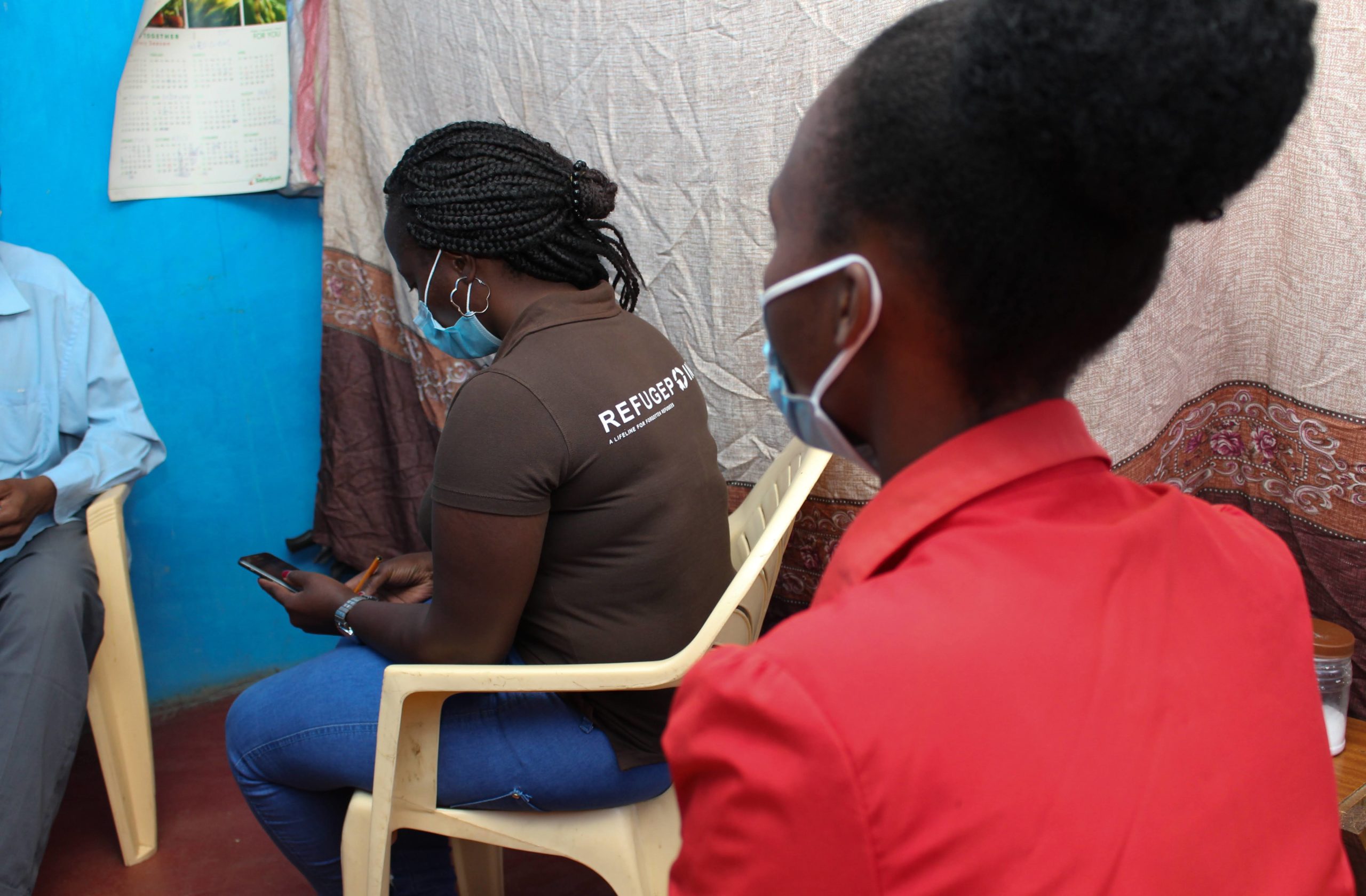Self-reliance involves stabilizing refugees in the countries to which they have fled and helping them regain the ability to meet their essential needs and reduce dependence on assistance. The case management process is one tool that helps us to guide our interaction with client households in Nairobi, Kenya as they work towards achieving self-reliance.
During the case management process, RefugePoint case managers work with clients to identify the household’s needs and set goals to address those needs using the existing strengths and resources of the people within the household as well as additional support from RefugePoint. Case managers and clients jointly review goal areas, including health and nutrition, education, shelter, hygiene, livelihoods, safety, and harm reduction. Clients take the lead in this process. The case managers provide guidance and make any necessary referrals for services like counseling, support to start or run a business, rent assistance, and food support.
In January 2021, we joined one of our case managers, Beatrice, on a visit to the household of Jean-Claude*. In 2017, Jean-Claude* and his family of 10 fled their home in the Democratic Republic of Congo due to fears for their safety. As they fled, Jean-Claude sustained multiple gunshot wounds. When the family arrived in Nairobi, Jean-Claude became very ill due to his wounds and had to get a colostomy. Because Jean-Claude was incapacitated, his family’s needs were in jeopardy. Anne-Marie, RefugePoint’s Community Navigator who serves Jean-Claude’s neighborhood, referred the household for support in 2020. RefugePoint began supporting the family with food, rent, and education assistance.
Jean-Claude welcomed us into his home, and Beatrice asked questions about Jean-Claude’s health and the family’s well-being. Jean-Claude had healed and regained so much strength that he felt able to return to work, and he expressed an interest in selling second-hand shoes in his neighborhood. Beatrice guided Jean-Claude through a thought process to consider whether selling second-hand shoes would be a viable business idea and then referred Jean-Claude for livelihoods support to determine the need for a possible small business grant to launch the business.
Challenges often present themselves in case management. Circumstances change in the lives of our clients and case managers have to conduct follow-up home visits to establish what has happened to them. The Community Navigators are crucial in such circumstances as they can trace clients using community connections.
Goals are reviewed regularly by the case manager and the household members until they meet their objectives. We’ve found that, on average, it takes about two years for clients to stabilize to the point of self-reliance where they can graduate from our support. “Case management is a magical journey that turns pain into happiness and hope,” Beatrice told us at the end of our visit.
